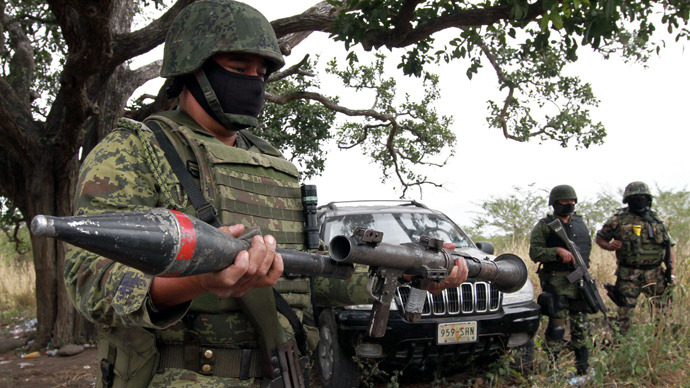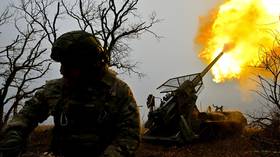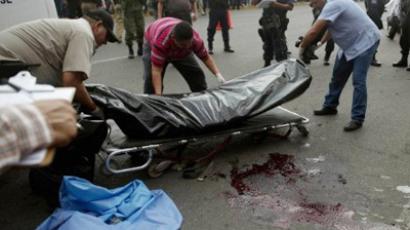Mexican drug cartels: ‘The most serious threat the US has faced from organized crime’

Mexican drug cartels — the same groups credited with taking tens of thousands of innocent lives through brutal murders during the last few years — have infiltrated the United States.
In an exposé published by The Associated Press this week, reporter Michael Tarm cites an extensive review of federal court cases, government drug-enforcement data and interviews with top law enforcement officials to back up the claim that violent drug lords from south of the border have established bases within the US that are now working as remote hubs for international narcotics rings.
These groups, writes Tarm, once rarely journeyed out of Mexico or, if that, far beyond the nation’s border with the US. In recent years, however, Mexican cartels like the infamous Zetas have extended their reach into the US by literally deploying entire units to oversee domestic operations.
It isn’t amateur drug mules or wannabe gangsters that are being sent abroad either. The AP says some of the most trusted agents aligned with Mexican drug militias now operate out of the US “to tighten their grip on the world's most lucrative narcotics market and maximize profits.”
Should the expansion continue at its current rate, US authorities warn that it could eventually become harder if not impossible to extradite the cartels to outside of the US. Soon, says Tarm, drug smugglers may expand into other ventures, like prostitution, kidnapping-and-extortion rackets and even money laundering.
"It's probably the most serious threat the United States has faced from organized crime," Jack Riley of the US Drug Enforcement Administration explains to the AP.
Southern California, Texas and Arizona aren’t the new homes of these groups, either. Nine non-border states across the US now have a documented Mexican cartel presence, with the AP claiming that these collectives have expanded as far north as Pennsylvania, roughly 1,500 miles away.
In Chicago, Illinois, the cartels have even become the new kings. In the Windy City, the Chicago Crime Commission now considers Joaquin "El Chapo" Guzman, the leader of the Sinaloa cartel, as Public Enemy No. 1 — the same title once bestowed on gangster kingpin Al Capone. Unlike his prohibition era counterpart, though, Guzman has never once set foot in the eastern Illinois town.
"People think, 'The border's 1,700 miles away. This isn't our problem.' Well, it is. These days, we operate as if Chicago is on the border,” Riley tells the AP.
But if geographical boundaries no longer apply in terms of the growing drug trade, will the same trends found in Mexico make their way up north too? The Houston Chronicle reported over the weekend that 3,000 drug-cartel murders have been carried during just the first 100 days since the country's president, Enrique Peña Nieto, took office in December. And since 2006, the death toll is thought to exceed 70,000 — or nearly 20 times more than NATO combat deaths in Afghanistan, adds the paper.
As recently as last Friday, seven people were killed in Ciudad Juarez, Mexico after a gunman opened fire in a bar using an AK-45 assault rifle.
"It has not been determined whether the attack is connected to drug trafficking, but by the type of weapon involved, it is to be assumed," police spokesman Carlos Gonzalez told Reuters.
But given the documented expansion of the drug gangs into locales like Chicago — where crime states have skyrocketed in recent months — the surge in cartel presence in the US is likely already being accompanied by a wave of violence as well. The Texas Department of Public Safety cites 22 killings and five kidnappings in Texas due to cartel activity from 2010 through mid- 2011, but as gangs penetrate further into the mainland, those numbers are expected to only grow.














